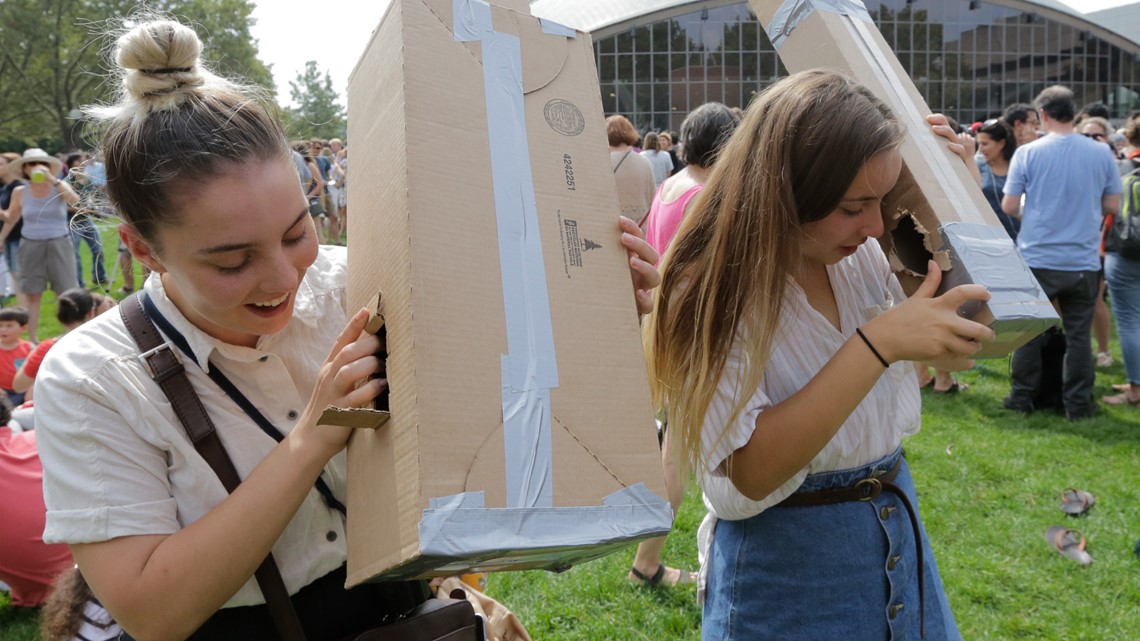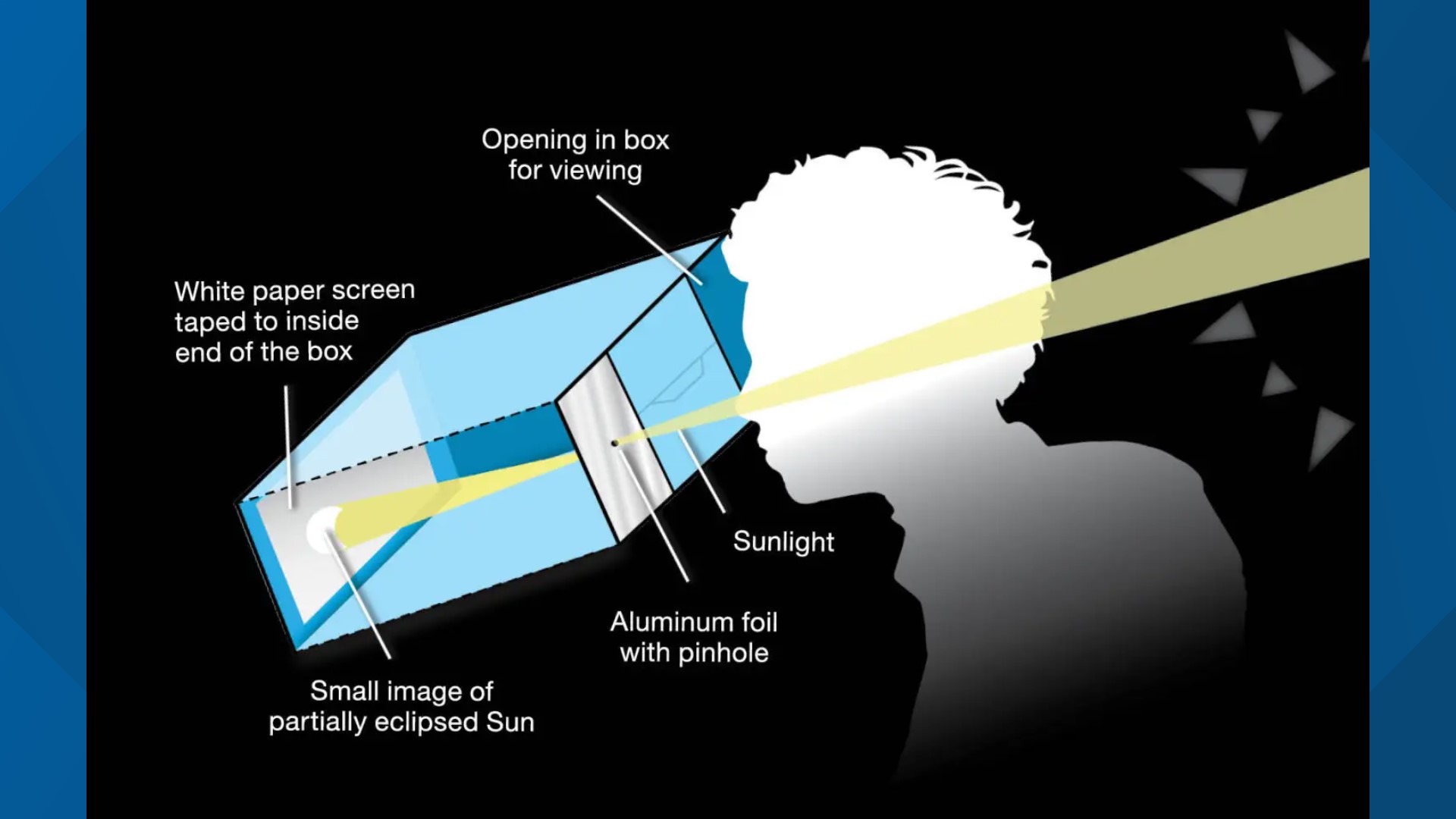WASHINGTON — With the total solar eclipse almost here, the clock is ticking to plan for how you're going to safely watch the celestial spectacle.
Hopefully this isn't the first time you're hearing this, but special eclipse glasses are needed to watch Monday's event. Sunglasses won't cut it! If you happen to be within the 115-mile-wide path of totality that stretches across the U.S., it's fine to remove your glasses and look with your naked eye but only during totality when the sun is completely shrouded.
If you're anywhere else in the U.S., keep your eclipse glasses on for the entire time.
What if you don't have eclipse glasses?
If you're not able to get your hands on eclipse glasses or need a last-minute solution, there are a couple of ways to make solar eclipse viewers using items around the house.
How to make a pinhole projector for solar eclipse
NASA's Jet Propulsion Laboratory has provided a step-by-step guide for how to make a pinhole projector.
Materials you'll need: 2 pieces of white card stock, aluminum foil, tape, pin/paper clip or pencil.
1. Cut a 1-inch to 2-inch square or rectangular hole in the middle of one of your pieces of white card stock.
2. Tape a piece of aluminum foil over the hole that you cut in the card stock.
3. Flip the card stock over and use your pin, paper clip or pencil to poke a small hole in the aluminum foil.
4. Place the other piece of card stock on the ground and hold the piece with aluminum foil above it. Next, stand with the sun behind you and view the projected image on the card stock that's on the ground.
How to make a shoebox eclipse viewer
If you want to take it up another level, you could make a similar projector/viewer for the eclipse with a shoebox or cereal box. NASA has provided instructions for this as well.
Materials you'll need: Cereal or shoe box, scissors, aluminum foil, pencil, push pin, tape, white piece of paper.
1. Trace one end of the box on the white sheet of paper.
2. Use the scissors to cut the shape you just traced.
3. Place the paper shape inside the box on the same end you had traced.
4. Cut two square holes on the opposite end of the box, with one on the left and another on the right.
5. Cover one of the square holes with aluminum foil and use tape to keep it in place.
6. Use the push pin to make a hole in the center of the aluminum foil.
7. To use the viewer, stand with your back to the sun and look through the square hole until you see the sun projected onto the paper.
When is the total solar eclipse?
Entering the U.S. through Texas, the solar eclipse will begin its partial eclipse phase at around 12:20 pm in CDT in Dallas on Monday, April 8, according to NASA.
Totality is set to begin around 1:40 p.m. CDT until 1:44 p.m. CDT in Dallas, Texas, before completely ending at 3 p.m. CDT.
The eclipse will approach the east coast at around 1:59 p.m. EDT, in Cleveland, Ohio. Totality will begin at 3:13 p.m. and end at 3:17 p.m. EDT.
In Maine, the eclipse will begin at 2:22 p.m. EDT, with totality beginning at 3:32 p.m. EDT and ending at 3:34 p.m. EDT.
The eclipse will exit through Newfoundland, Canada at 5:16 p.m. NDT.
When the eclipse begins and how long it'll last depends on where you are in reference to the path of totality. For some, the eclipse could be as long as four minutes.
For more information on specific eclipse times in your city, check out Eclipse2024.org
WTOL contributed to this report.



